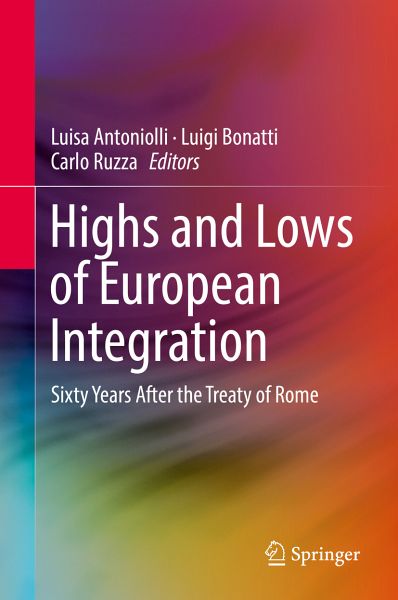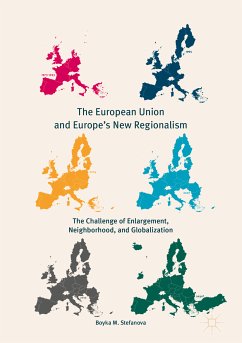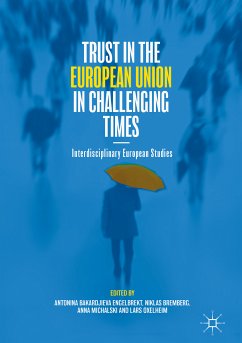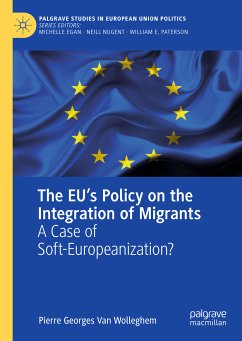
Highs and Lows of European Integration (eBook, PDF)
Sixty Years After the Treaty of Rome
Redaktion: Antoniolli, Luisa; Ruzza, Carlo; Bonatti, Luigi
Versandkostenfrei!
Sofort per Download lieferbar
96,95 €
inkl. MwSt.
Weitere Ausgaben:

PAYBACK Punkte
48 °P sammeln!
In light of Europe's prolonged state of crisis, this book reassesses the challenges and prospects of the European integration process. Scholars from diverse disciplines reflect on various types of integration by analyzing political, economic and sociological variables, while also taking legal and cultural constraints into account. Readers will learn about the dilemmas and challenges of the European transformation process as well as political reforms to overcome these challenges. The book is divided into four parts, the first of which discusses the external dimension of the European Union, incl...
In light of Europe's prolonged state of crisis, this book reassesses the challenges and prospects of the European integration process. Scholars from diverse disciplines reflect on various types of integration by analyzing political, economic and sociological variables, while also taking legal and cultural constraints into account. Readers will learn about the dilemmas and challenges of the European transformation process as well as political reforms to overcome these challenges.
The book is divided into four parts, the first of which discusses the external dimension of the European Union, including a review of development aid policies and EU foreign policy. In turn, the second part focuses on institutional change and asymmetrical integration in the EU. The third part is devoted to the rise of populism and nationalism, including an analysis of the role of civil society organizations in the Brexit. In closing, the last part highlights the crisis ofthe Euro as a symbol of European integration and the emerging social and economic divide between countries of the North and South.
Dieser Download kann aus rechtlichen Gründen nur mit Rechnungsadresse in A, B, BG, CY, CZ, D, DK, EW, E, FIN, F, GR, HR, H, IRL, I, LT, L, LR, M, NL, PL, P, R, S, SLO, SK ausgeliefert werden.
Alle Preise in Euro und inkl. der gesetzl. MwSt. | Innerhalb Deutschlands liefern wir preisgebundene Bücher versandkostenfrei. Weitere Informationen: bitte hier klicken
Support
Bitte wähle dein Anliegen aus:
Rechnungen
Bestellstatus
Retourenschein
Storno












